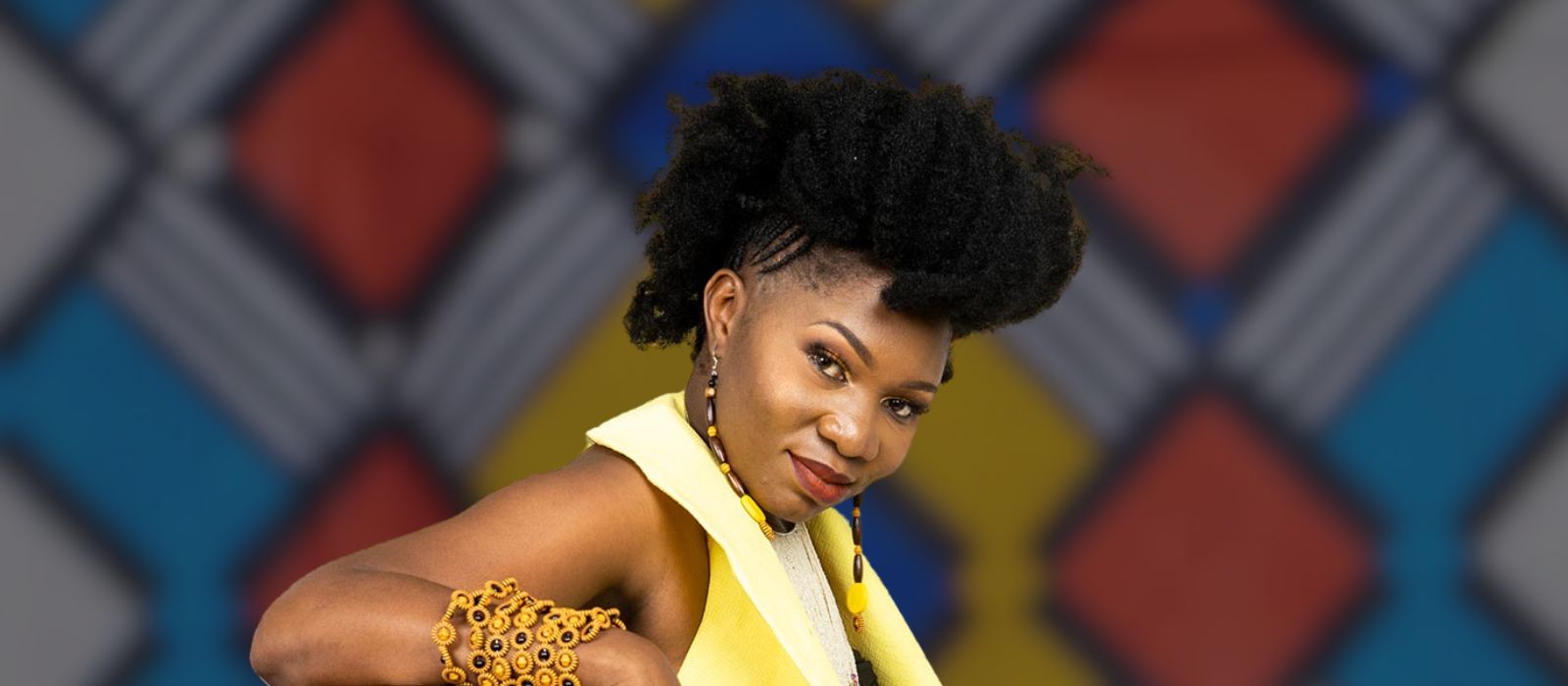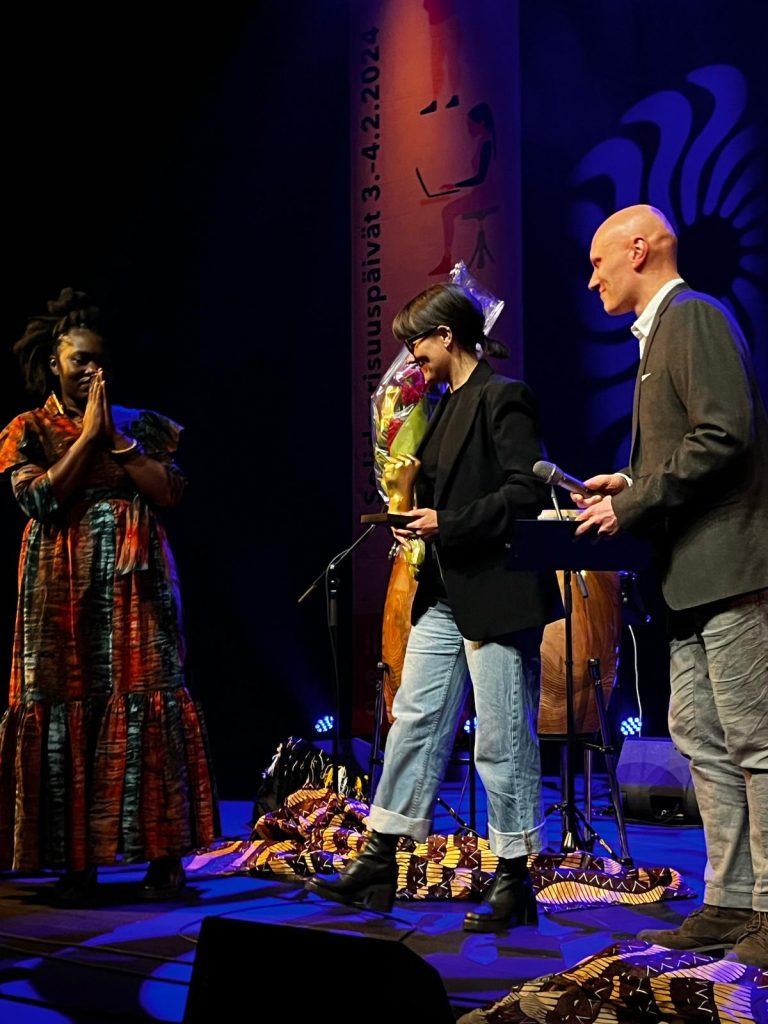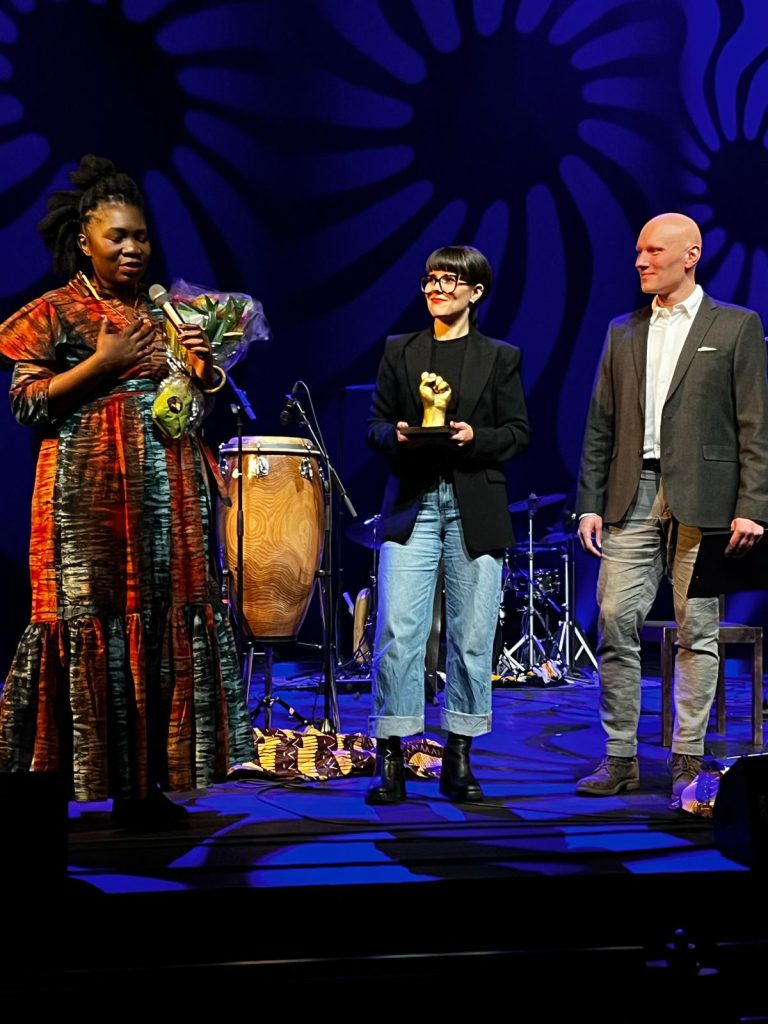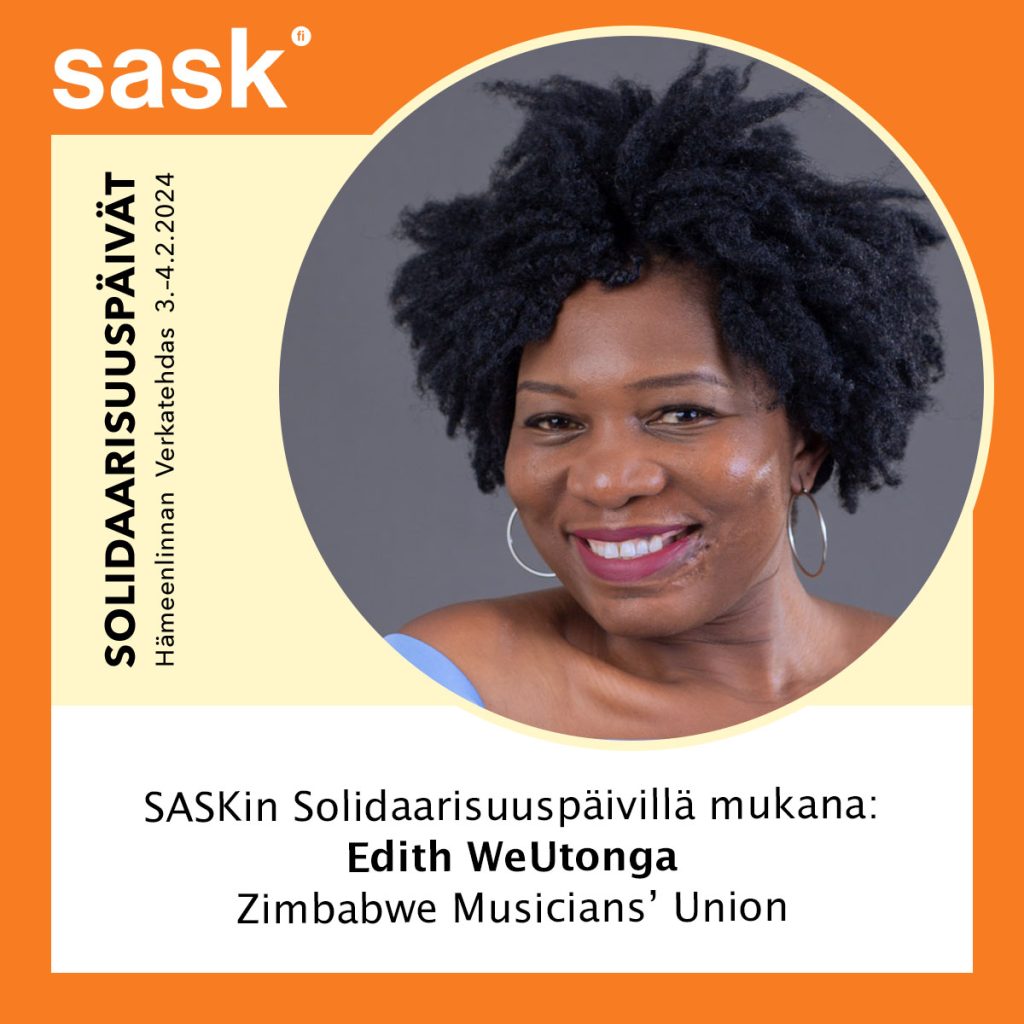
Edith WeUtonga, an award-winning UK-Zimbabwean based musician, is a pioneering bassist, vocalist, and songwriter, leading her band Utonga. Infusing Zimbabwean sounds with elements of Jiti, Chimurenga, and Shona folk, she also incorporates influences from World music genres like Rhumba, Reggae, Calypso, and Jazz.
Forming Utonga in 2010, she swiftly released her debut album, “UTONGA,” featuring ten tracks, propelling her to prominence as one of Zimbabwe’s foremost musicians, gracing the stages of the nation’s premier venues and festivals.
Popularly known as ‘Mhamha Bass’, her narrative continues to ascend, leaving an indelible impression in Africa, and now Europe. Our reporter caught up with her, and below is the journey, as shared by Edith. (By Chiedza Mukucha – CM, for Edith Katiji – EK)
CM: Congratulations on receiving the prestigious Nyrkki award from the Finnish Musicians’ Union! How do you feel about being recognized for your significant contributions to the music industry?
EK: I am still in awe. When you become used to being undermined, attacked for your efforts, this just blows you away.



CM: Could you share some insights into the specific initiatives or projects that led to you being selected for this award?
EK: My role in the Zimbabwe Musicians Union and the passion to see a difference in the way things are done. In 2022, I sought the Finnish Musicians Union ata meeting in Greece and shared our Zimbabwean music industry story, our challenges and what we would need to make a step in the right direction as far as the role of a union is concerned. I had thirty minutes, and I was to find out later that they were sold in 5! Through the corporation with the Finnish Musicians Union, we managed to get mentorship, legal advice strategies for the union to move. The union linked us to SASK, who managed to fund our 10 Province “Musician As A Worker” campaign, which I must say has been a success! We have been to seven of the provinces and will go to the remaining three in the next two months.
CM: As the founder and president of the Zimbabwe Musicians’ Union (ZIMU), what inspired you to establish the union, and how has it evolved over the past decade?
EK: I was not the only founding member, there was a team! However, the union was formed in July of 2014 to challenge and address the problems bedevilling the sector. After a lot of back-and-forth discussions on social media platforms, we resolved to meet in person and map a way forward. Over 80 musicians showed up at the then Book Café on Samora Machel Avenue and a steering committee of about 20 people was set up. Over the years these have left for varying reasons. We coopted and kept moving on the mandate we had set, to be a national union and to stand for the rights of the musician in Zimbabwe. We affiliated with the International Federation of Musicians and became a part of the music unions family globally. In 2021 I was voted into the presidium of the Federation. Working with other unions provided us with the best approach on “how to, or not to” in this business.
CM: You’ve been actively promoting equality and the position of women in the music industry. Can you elaborate on some of the challenges you’ve faced and the progress you’ve made in this regard?
EK: My best example is ME! Towards the end of the year after the formation of the union, one music manager/promoter said to me after a meeting in the Book Café, “you know the union would perform better if you let a guy lead this?” That was resolve, I was onto a good path and being a woman in that role was rubbing some people the wrong way. As we coopted, it became apparent that to be safe, we would have to be very alert on who comes in, and what role they played. Turned out at some point that ZIMU was 80% women led!
CM: Collaboration seems to be a key theme in your work, both locally and internationally. How important is it for musicians to come together and support each other, especially in challenging environments?
EK: The challenges we face are the same, for at least 95% of musicians in Zimbabwe. These problems do not require individualism, but a unity of purpose as they engage people of authority, governments and the legislation of the country. Collaboration allows us to have a peek of what is in the countries that have done well over the years. For example, our mentors in Finland are 107 years old! Now when they let us in on the challenges they faced then, the strategies they used, we are most likely to avoid or plan according before we face the same challenges. Not only that, but we were also not a financially supported union locally and that has made it very hard to reach our goals. Collaboration brings human capital, dense connections that help make this happen quicker. Our call for help is amplified in a flash! Our union committee members have been afforded training that will make them more effective. For the first time a union physically visited the places that have never been visited before by a music union to hear first-hand, from the musicians themselves, how they want the industry to function. Our corporation with Finland and the International Federation of musicians has made this possible.
CM: The Nyrkki award recognizes activism and actions that promote the cause of music performers. What do you think are the most pressing issues facing musicians today, and how can collective action address them?
EK: There are no Standard Operating Procedures even for the most “basic” things for musicians in Zimbabwe. We do not have the right platforms and ways to address these. Why? Because we are yet to formalise how the industry operates and because of that, musicians are taken advantage of everyday by the people and agencies they provide service for. Some of them are representatives of bigger organisations and countries and yet, they have found the gap in our sector and will take advantage of that. A collective action allows us to negotiate as a unit, set collective agreements with industries that engage musicians, set penalties for non-adherence, and see it followed through. Without these, even the new visual and performing arts curriculum will fail as there is no structured continuation for all students officially studying the arts.
CM: Your dedication to improving working conditions for musicians extends beyond Zimbabwe and Africa. Can you discuss some of the global initiatives you’ve been involved in and their impact?
EK: I sit on the presidium as Vice President of the International Federation of musicians which has over 60 countries represented. Some of our success stories include the Pernambuco case where musicians’ lives were at a threat due to proposal at CITES. The convention was going to vote to end the making of bows from specific wood in Brazil. This would affect classical to traditional musicians who use instruments made from these. Our vote, ZIMU included, made a difference. In 2016 as African states we signed the Dar es Salam agreement to make specific our gender policies to address issues of equality. In Zimbabwe we fought a harassment case for one of our own and won! Supporting corporations between older and younger union, raising the cause in music education in varying countries. The list is endless….
CM: The award ceremony took place at SASK’s Solidarity Days in Hämeenlinna. What significance does this event hold for you personally, and what message did you convey during the ceremony?
EK: My message: When you are driven by passion, you do not do things for people to applaud but to at least take note and support our cause. It has been a tough road and receiving an award that is a significant acknowledgement of the work I and the union have been doing means a lot. I have been attacked, stalked and called names and been a discussion in bad ways just for what I stand for, but I am glad I stood my ground, developed a thick elephant skin and looked towards the goals. My wish is that its not in vain, that this has been a decade of laying a strong lifetime foundation. The future, for musicians and all creatives in Zimbabwe, should hopefully be brighter. That the award was given there is a significance of who I am, if ever I doubted the work my team and I have been doing, now my strength and resolve is renewed!
CM: Looking ahead, what are your goals and aspirations for the future of ZIMU and your advocacy work within the music industry?
EK: There’s a lot of firsts, as we seek to decentralise power and activities to each province. Their needs may vary according to context, and we would like to see these through the right way. The National Arts Council of Zimbabwe has been by our side in helping us coordinate our provincial visits and for that we are grateful. Without them, this would have been much harder. We are on the right path, slowly….
CM: Finally, what advice would you give to other musicians who are passionate about making a positive impact in their communities and beyond?
EK: Do not be talked down. Dogs bark at a moving object. If you do not stand up, speak out, no one will know your challenges and help will not come. Be the first step!



